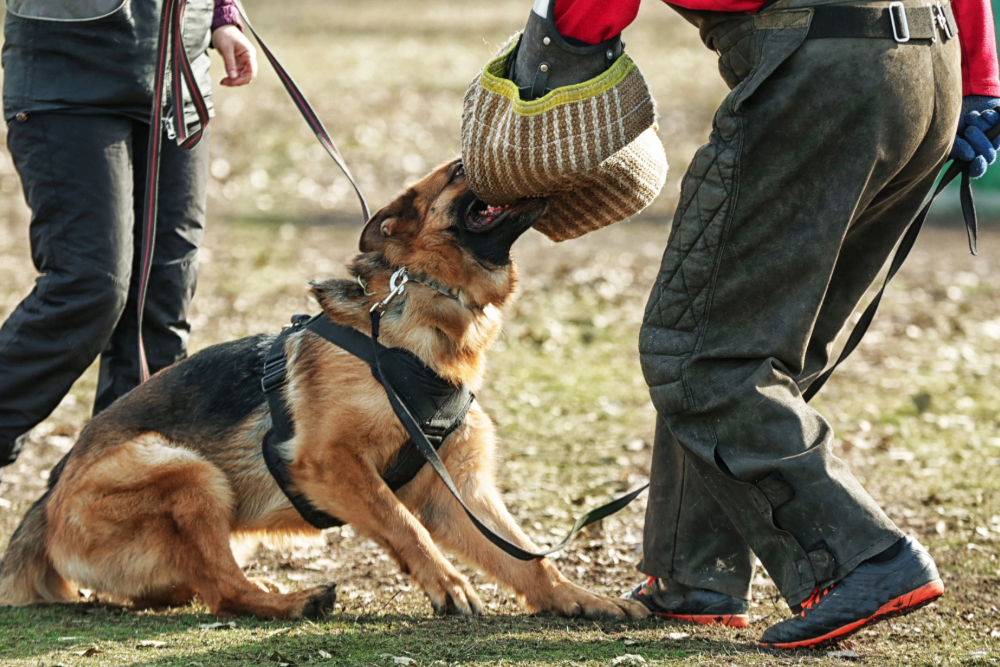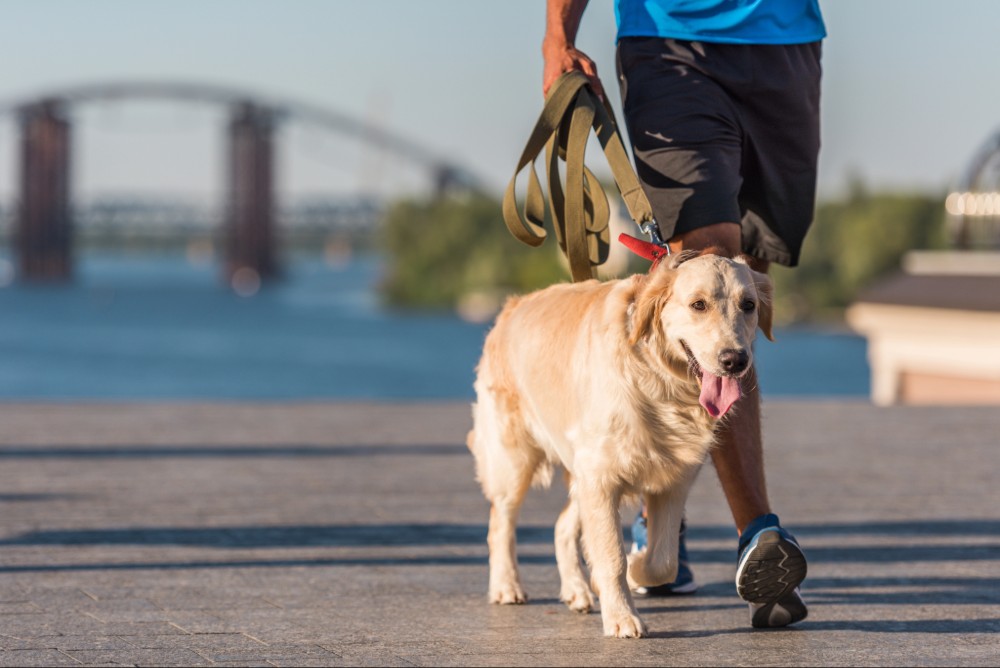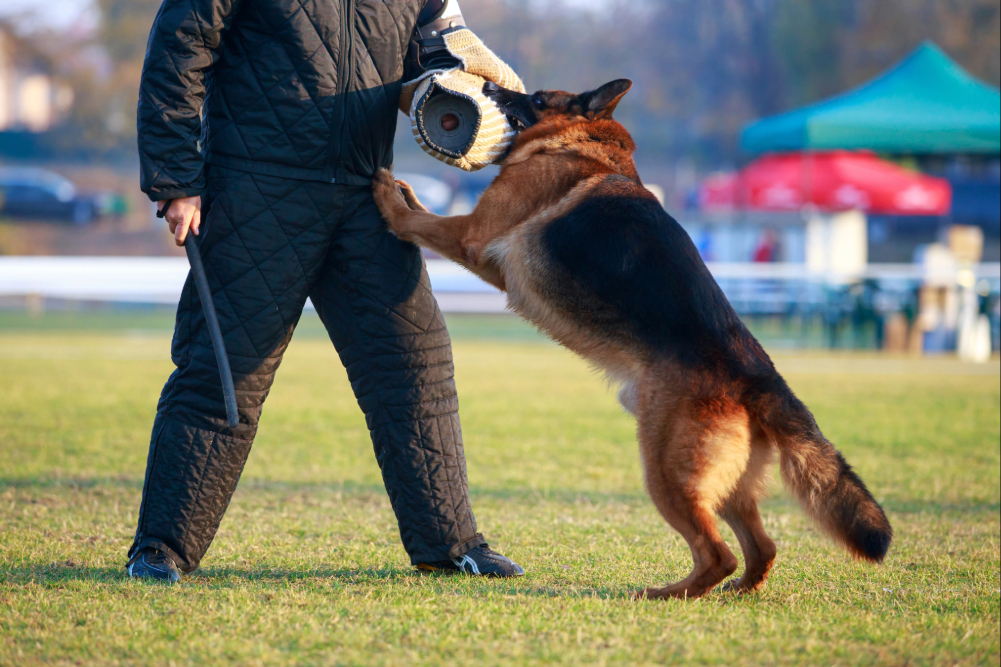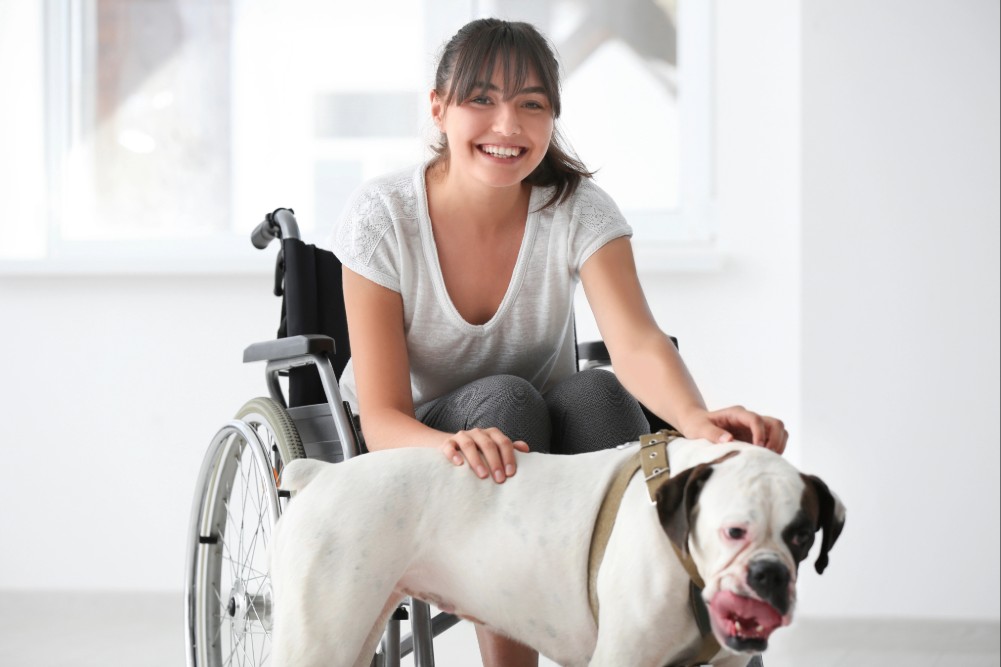
Learning how to find the right dog trainer can make a significant difference in your dog’s behavior and well-being. The right professional is critical for dogs that require basic obedience or specialized training, such as service dog training.
Here are six factors you should consider when looking for a dog trainer and having a successful partnership for you and your dog.
Training Methods Used
When searching for a dog trainer, it is important to understand the training methods they employ. Positive reinforcement is one of the most effective and humane ways to teach dogs new behaviors, as it rewards them for good actions rather than punishing undesirable ones.
However, some trainers use balanced methods that incorporate multiple learning techniques to address various behaviors. It is important to make sure the trainer’s style aligns with your approach and preferences.
Understanding the techniques the trainer uses is key to the effectiveness of the training. Ask them to describe their methods in detail and inquire about how they handle difficult behaviors such as aggression or fear. Trainers who can demonstrate a thorough understanding of behavior modification are likely to be more successful in working with dogs who have unique needs.
Experience with Specific Training Needs
Not all trainers specialize in every area of dog training, so it is best to select one that has experience in the type of training your dog needs.
If you are seeking service dog training, it is best to choose a trainer with expertise in preparing dogs for this specialized role. Similarly, if you require protection dog training, look for trainers who have worked with protection dogs before and understand the requirements for these highly skilled animals.
When interviewing a potential trainer, ask for examples of dogs they have trained in the past and their success stories. Experienced trainers who have worked with a variety of dogs, from pets with mild behavioral issues to those needing more intensive service dog work, will have a broad range of solutions for your dog's needs.
Certifications and Credentials
A certified dog trainer displays commitment to their profession and an understanding of animal behavior.
Look for trainers who have certification coming from the most trusted organizations, such as the International Association of Canine Professionals or the Certification Council for Professional Dog Trainers. Certification shows that the trainer has met specific standards and has undergone rigorous training themselves.
In addition to certification, it is a good idea to ask about their continued education in the field. Trainers who stay updated on the latest research and trends in dog training are more likely to present innovative, effective solutions for your dog.
Reviews and Testimonials
Past client feedback provides valuable insight into a trainer’s capabilities and approach. Check online reviews and ask for references to better understand how the trainer interacts with dogs and owners. Positive reviews suggest consistent results and professional reliability.
However, do not just rely on online reviews. Speak directly to past clients, if possible, to learn more about their personal experience with the trainer. They may give additional information about how the trainer handled specific challenges or what the training process was like on a day-to-day basis.
Compatibility with Your Dog
Successful training depends on the connection between your dog and the trainer. Observe how the trainer interacts with your dog during evaluations or trial sessions. A good trainer will be calm, patient, and gentle, while remaining firm when necessary.
While some dogs may take longer to warm up to a new person, the trainer should be able to establish a connection with your dog quickly and maintain control without using harsh methods. Trust your instincts as an owner – if you feel that the trainer is a good match for your dog, it will likely lead to better outcomes in the training process.
Follow-Up Support and Aftercare
After completing a dog training program, ongoing support is important for maintaining the results achieved during training.
Ask the trainer about the aftercare they offer, particularly if they perform follow-up lessons or support once the training program ends. Some trainers, like our team at Controlled K9, include unlimited private lessons in their board and train programs. These lessons provide ongoing guidance while you reinforce the training at home.
Follow-up support is a vital aspect of making sure that both you and your dog can successfully integrate the new behaviors into your daily life. A trainer who offers ongoing support is invested in your dog’s long-term success and is a great sign of a dedicated and reliable professional.
Take the Next Step with Controlled K9 Training
Now that you know how to find a dog trainer who meets your needs, consider reaching out to Controlled K9 for personalized training that is tailored to your dog’s specific requirements. We specialize in a variety of training services, including K9 training, service dog training, and protection dog training.
Our trainers bring evaluations to your location and work closely with you to design a custom training program. If you are ready to take the next step, contact us today to schedule your evaluation and start working with your dog to achieve your training goals.




Comments